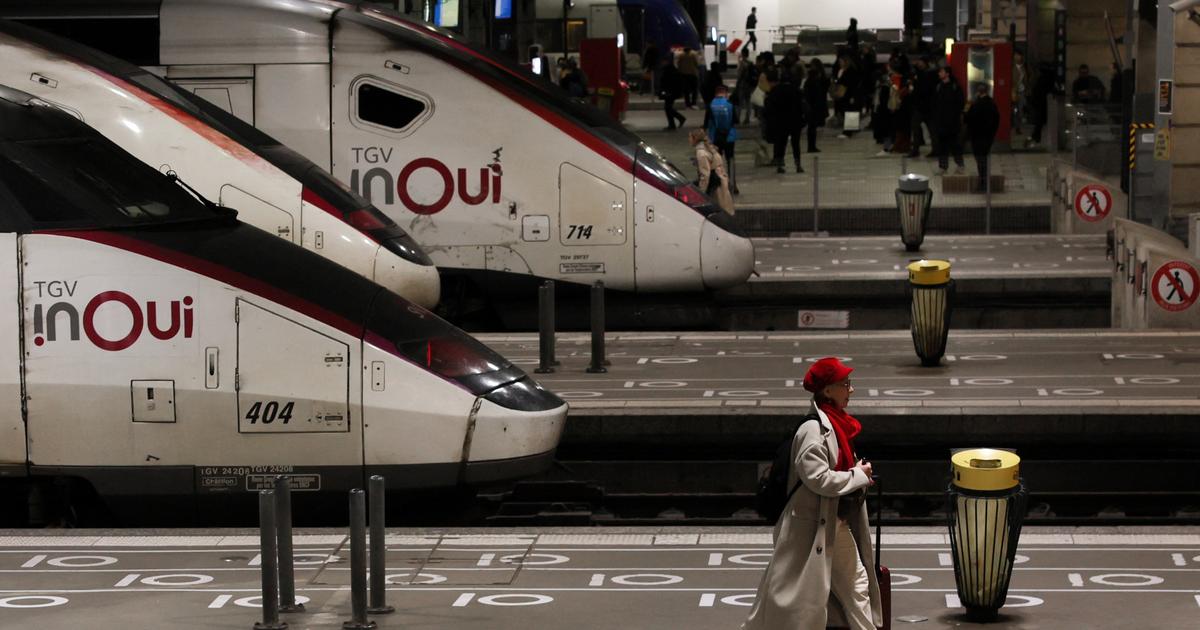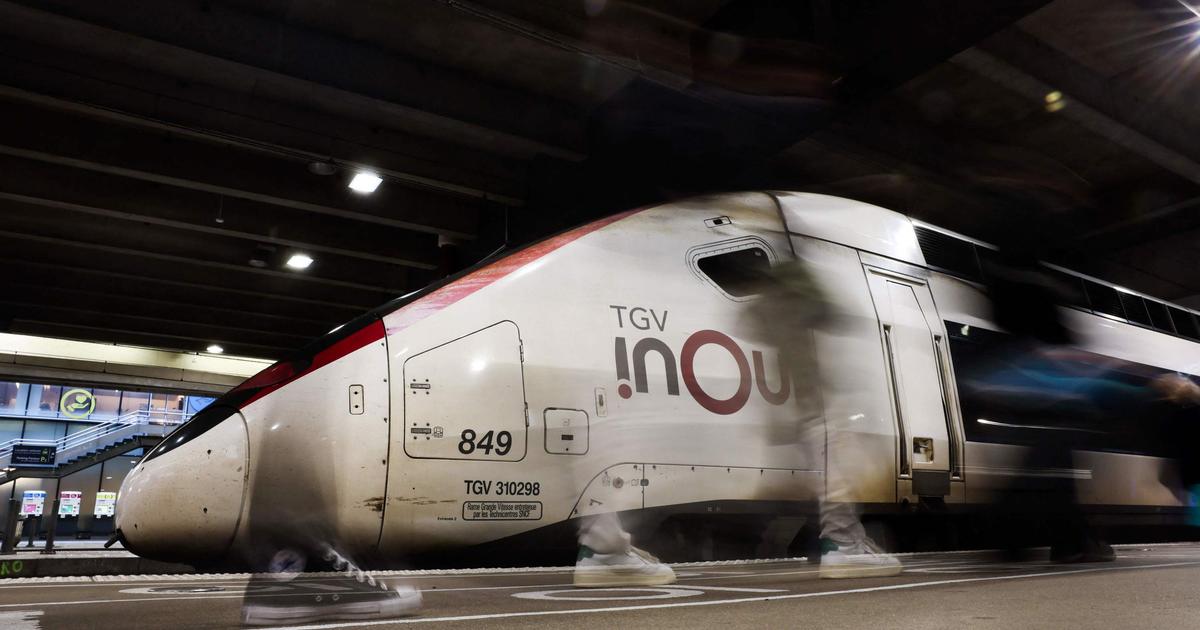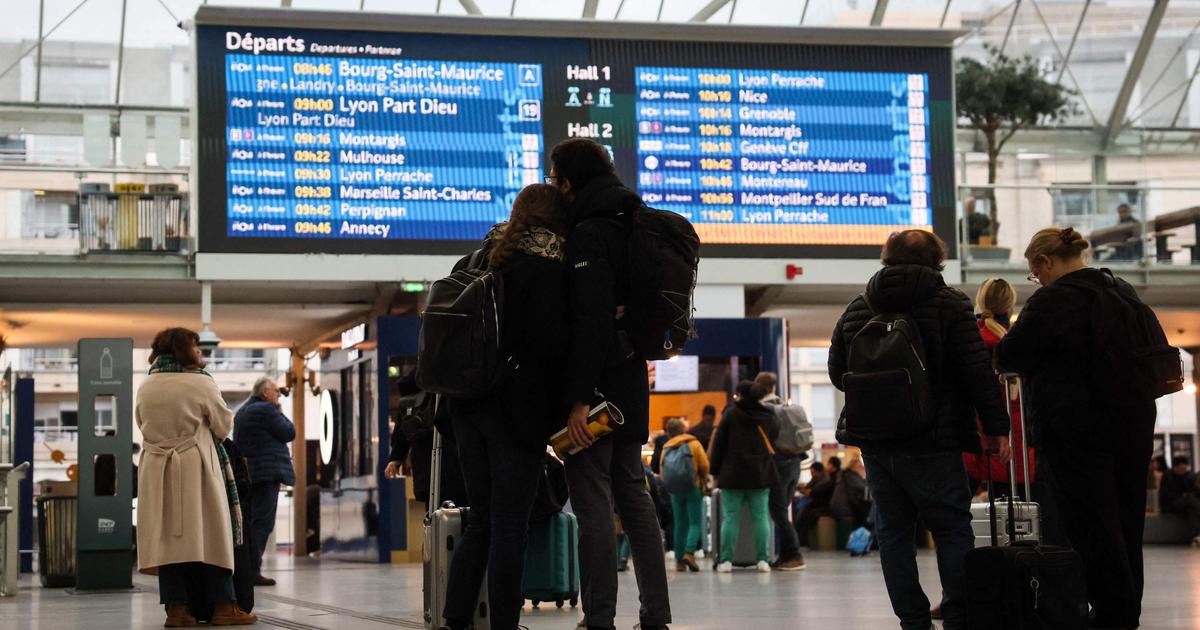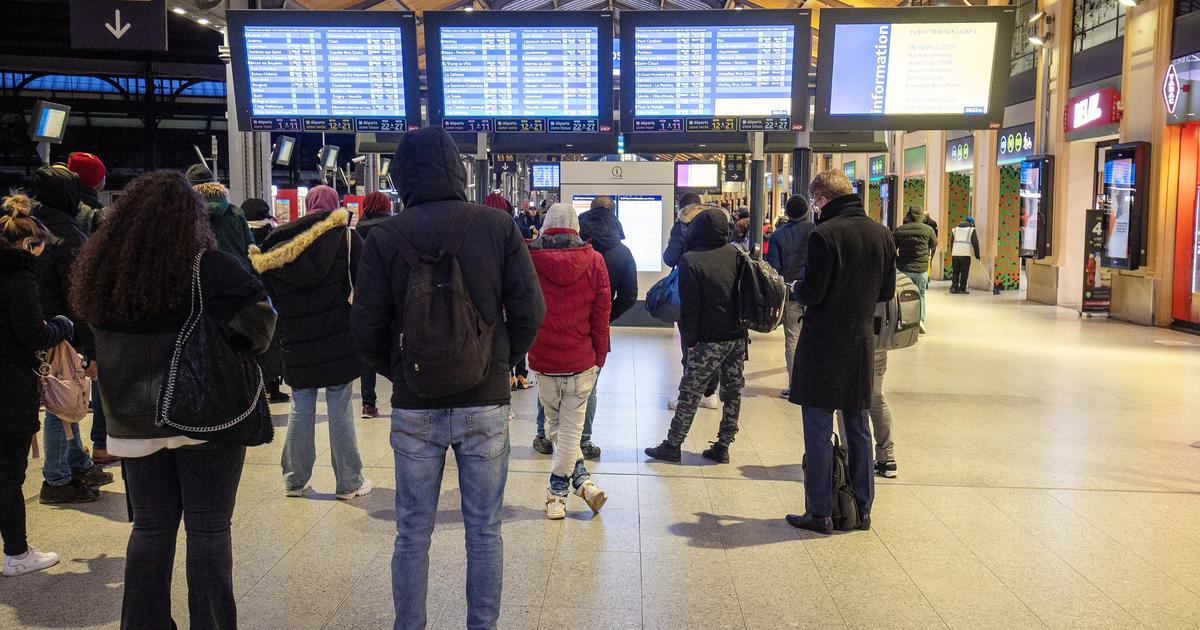Organizing rail traffic during a social movement could prove to be much more complicated for SNCF.
According to several trade unions, including the CFDT, nothing now obliges the railway workers who participate in the circulation of TGVs to warn the management of their intention to strike.
An unexpected consequence of the opening to competition of high speed lines on December 12.
Since the law of August 21, 2007, passed under the government of Nicolas Sarkozy, the railway workers who directly participate in the movement of trains, - drivers, controllers or switchers -, that is to say approximately 32,000 railway workers out of the 152,000 of the railway company, must file a declaration of individual intention (DII) to participate in a strike two days before the start of the movement.
Competition ends the public monopoly
The goal is simple: give SNCF management a precise picture of the forces available on strike days in order to inform travelers in advance about the expected traffic.
“Before the law, it was a mess, recalls an internal source.
As we learned at the last moment who was on strike or not, we canceled trains just before departure.
The users were going crazy.
"
It has since become a ritual.
The day before a strike day, the company disseminates its transport plan.
Thus, just a year ago, during the nearly fifty days that the social movement against pension reform lasted, the longest in the history of the SNCF, the French lived to the rhythm of traffic announcements. .
On December 5, 2019, the first day of the strike, the SNCF predicted a dark day, with only 10% of trains in circulation and one in ten TGV.
But that was before the TGV opened up to competition.
The law of August 21, 2007 stipulates in its first article that this text applies to: "any company or any agency, charged with a public service mission of regular land transport of people with a non-tourist vocation".
Nothing changes for TER and Transilien
“Because TGV was a public monopoly, management has always considered it a public service,” explains Sébastien Mariani, deputy national secretary of the CFDT-railway workers.
But this opening up to competition, in fact, puts an end to the public monopoly.
The DII should no longer apply ”.
For another trade unionist: “TGV finds itself in the same situation as the railway workers of Thalys or Eurostar.
Open to competition, they are not subject to DII.
There is a legislative hole.
"
Taking a TGV on a strike day could therefore prove to be much more complicated.
On the other hand, nothing has changed for TER and Transilien.
When contacted, the SNCF, visibly embarrassed, replied that "SNCF Voyageurs, as a company entrusted with a public service mission, complies with specific rules in terms of strike rights".
Internally, the subject is sensitive.
Trade unions were, in fact, scalded by the expansion of DII to a dozen additional categories in 2017, i.e. 56,000 more railway workers.
"This is the case with security officers, for whom it is difficult to understand how they are essential to the movement of trains", Sébastien Mariani is surprised.
Contesting this expansion, the CFDT and SUD Rail have moreover initiated legal proceedings against the SNCF.
Unions want the positive sides of the private sector
As regards the DII within the framework of the opening to competition, the file is in the hands of the legal office of the CFDT-cheminots.
"We are told repeatedly that the SNCF must be a company like any other," notes Sébastien Mariani.
But we are only applied to the negative sides of the private such as the waiting day, and not the positive.
"
Newsletter It pays me
The newsletter that improves your purchasing power
Subscribe to the newsletterAll newsletters
The trade unionist highlights the ANI law (National Interprofessional Agreement).
“Since 2016, companies must partially finance additional health care for their employees.
The Minister of the Civil Service even extends it to the civil service, but the railway workers are not entitled to it.
Management believes it is too expensive, 100 million euros per year.
Some trade unions do not hide the fact that it is on this subject of the mutual, as a priority, that they would like to make things happen.









